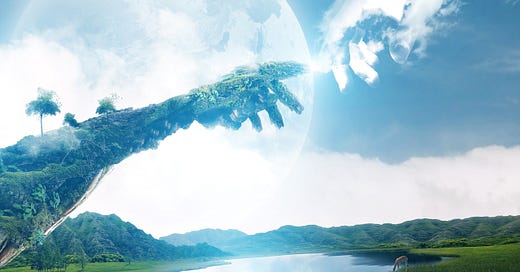Welcome! If you're yet to subscribe, kindly do so with this button. Also, remember to leave a like and a comment.
Dear Bolu,
You don’t know what you are. You don’t know the word that describes you. Last night you called yourself a hero because you broke the fall of a glass cup. The water in it spilt on the floor, of course; after all, you don’t have sponges on your feet. But you saved the cup from destruction with a deft touch. Your action had all the trappings of a footballer in his prime—insane reflexes, precise timing, and delicate control. Oh, you loved this moment. It felt good, as playing the hero often does, and it would have been perfect if there were spectators. But no one saw what happened. There was no soul to rapturously cheer your audacious move, and that made it a bit less glorious. Ah, of what use is glory if there is no one to accord you honour? And if you are a hero for saving the cup, then the villain must be the one who made the cup fall. But that was you, wasn’t it? That was also you. Perhaps you’re not exactly the hero you think you are.
A year ago, you called yourself a lover, and you had yourself a lover. You were seeing them although you’d never seen them. They were a thousand miles from you, but they were everywhere you went. It was good. It was great. They were orange as the setting sun. You were blue as the sun’s backdrop. They were warm as untreated fever. You were cool as a sea breeze. You’d hacked this “love thing” and wondered why people found it difficult to stay together. “There is nothing more to love than loving, is there?” Well, it didn’t last. It crashed. You’re still not sure why it fell apart, like a compromised Jenga Tower. Perhaps love was not designed for time. Perhaps attachment was not designed for distance. Perhaps they were never really yours. You’re not a lover—not anymore. Of course, that doesn’t make you a hater, but you are not a lover.
You called yourself a dreamer a decade ago because you dreamt ten years into the future. In the dream, you were all over the world. You were on screens. You were in papers. You were not a thing but a phenomenon. You were not a name but a sensation. You could afford your wishes. You could tend to your desires. You were closer to the sun than Icarus. You reached an inch further than Adam. In the dream, you were. Now, today, you are just—you just are. Your vision didn’t come true perhaps because you’re not Joseph—or Josephine, for that matter. You’re not a dreamer.
Well.
We have an obsession with states, and it’s only natural. It is how we make sense of things—what was, what is, and what is to be. It’s what living does to us. You hear it in our speech, and it manifests in our thoughts. We like to define things as if the definition makes them more tangible than they already are. Who are you? What are you doing? How are you? We are very stateful beings, and it is often a good thing. Sometimes, however, it’s not our most helpful quality. For one, it’s hard to put certain states into words. You could be happy and sad. You could be both a hero and a villain. You could be succeeding and failing. And searching for a word to describe oneself isn’t always helpful. Describe yourself in one word. You can try, but can you honestly do that? We are a coalescence of many things, and saying one thing or the other is usually insufficient.
Also, it is through states that we ascertain “progress”. How much do I have? We compare ourselves with our previous selves or with others. That’s also how we set goals—by articulating a state we’d like to be in in the future. I want to own a dairy. I want to win the World Limbo Championships. We try to transform ourselves into these new states, and when we succeed, we define ourselves by them. A dairy owner. A world champion. But those states don’t adequately describe us, do they? If they do, what is to be said of the transformation that brought us into that state? Those transformations vary with people. So while we may arrive at the same state, we travel different paths. We learn different lessons. We gain and lose different possessions. And I think that beyond our states, the process of moving from one state to another best defines us. So we shouldn’t only focus on getting to new states; we should also focus on the transformation that brings us to that state. We should make sure it’s honest and noble. We should make sure it’s real and active.
Whether you’re a hero, a villain, a lover, a dreamer, a dairy owner, or a world champion, I think it matters more what transformation brought you to that state than the state itself. States don’t change us, no. We change states. And it is that change that tells us what we are, dear friend.
Fin.
P.S.
I didn’t finish this letter as well I’d hoped. It contains my unfinished thoughts. I’m not sure if and when they’d be finished, but I hope you enjoyed it, even if it’s just a little.
Thanks for reading! I’m delighted you made it here. If you liked this issue of Dear Bolu, you could sign up here so that new letters get sent directly to your inbox.
If you really liked it, do tell a friend about it.
Also, remember to leave a like or a comment!
Write you soon, merci!
- Wolemercy





We change states. That's an amazing way to put it.
The message of this article reminds me of one of my favourite short stories. "State change" by Ken Liu.